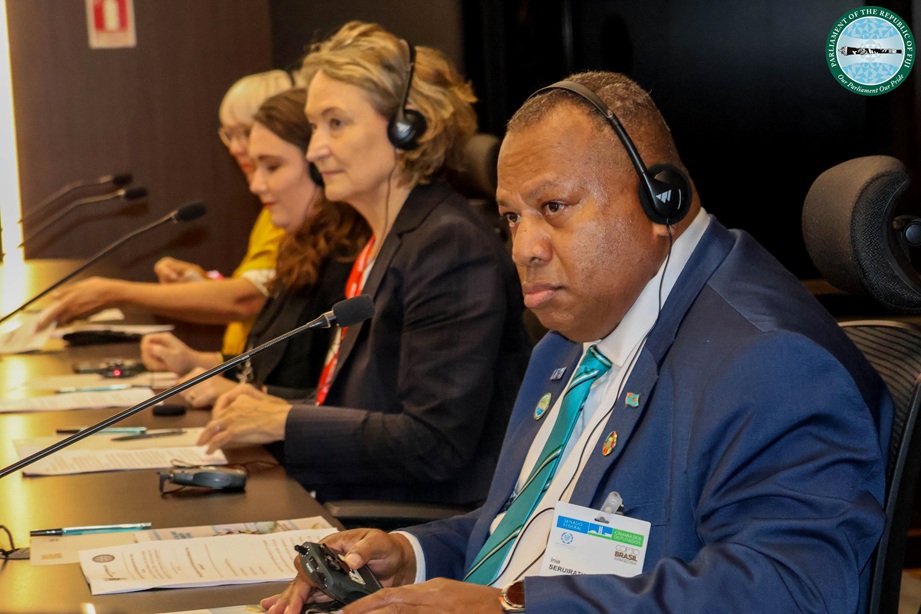Adaptation must be at the heart of governance.
That was the message from Opposition Leader Inia Seruiratu as he called on parliaments to step up efforts to protect vulnerable communities from the worsening impacts of climate change. Speaking at the panel discussion Enhancing resilience: How can parliaments deliver on adaptation, he said the ability of Pacific nations to survive depends on meeting the Paris Agreement’s temperature goal.
“Our future is dependent on the successful delivery of the Paris Agreement’s objectives and its ability to limit global average temperature rise to below 1.5 degrees Celsius.”
He warned that every rise in global temperature increases the difficulty and cost of protecting island communities.
“Every incremental increase in global average temperature rise increases the costs and reduces the feasibility of robust adaptation solutions for our island communities.”
Fiji’s National Climate Change Act, which declares a climate emergency, was highlighted at the meeting as an example of how climate resilience can be built into governance, budgeting and investment systems.
Mr Seruiratu outlined three areas where parliaments must act: integrating adaptation into all national planning; ensuring frontline groups such as women, youth and coastal communities have fair access to adaptation finance; and strengthening oversight so global goals match local realities and international funding supports national priorities.
He closed his remarks by stressing the responsibility of elected leaders.
“Our constituents’ voices must not only be heard – but they must also shape the decisions we make. Adaptation must be at the heart of governance.”
The parliamentary meeting at COP30 was organised by the Inter-Parliamentary Union and the National Congress of Brazil and hosted at the Legislative Assembly of the State of Pará in Belém.
It reinforced the role of parliaments in shaping climate policy as countries prepare for COP31.



